
Premium Gypsum Retarder Chemical for Extended Workability
Introduction: The Critical Role of Gypsum Retarders in Modern Construction
In the rapidly evolving landscape of construction materials, precision and performance are paramount. Gypsum-based products, celebrated for their fire resistance, sound insulation, and aesthetic versatility, have become indispensable. However, the inherent rapid setting time of gypsum plaster can pose significant challenges for application, demanding sophisticated control over its hydration process. This is where the gypsum retarder chemical emerges as a critical additive, meticulously engineered to extend workability and optimize application efficiency.
Our focus is on providing an in-depth understanding of these essential compounds, exploring their technical specifications, application benefits, and strategic importance to B2B decision-makers and technical professionals. Related keywords like most common retarder in gypsum highlight the industry's continuous search for effective and reliable solutions that meet diverse project demands and regulatory standards.
Industry Trends Shaping Gypsum Retarder Demand
- Sustainable Building Practices: Growing emphasis on eco-friendly construction materials drives demand for gypsum products, which are often recyclable and possess low embodied energy. This, in turn, increases the need for high-performance additives like gypsum retarder chemical to enhance their applicability.
- Efficiency in Application: The construction industry consistently seeks methods to reduce labor costs and project timelines. Extended open times facilitated by gypsum retarders allow for larger batches and more consistent application, streamlining on-site operations.
- Specialized Formulations: The market increasingly demands tailor-made gypsum products for specific applications—from highly decorative finishes to high-strength flooring compounds. This necessitates a versatile range of retarders that can be fine-tuned to achieve precise setting profiles.
- Automation and Mechanization: With the rise of machine-applied plasters, the consistency and rheology of the gypsum mix become even more critical. Retarders play a vital role in ensuring pumpability and sprayability over extended periods without premature hardening.
These trends underscore the strategic importance of selecting the right gypsum retarder chemical, not just as an additive, but as a performance enhancer that contributes significantly to the overall quality and efficiency of modern construction projects.
Understanding the Gypsum Retarder Chemical: Manufacturing Process and Mechanism
A gypsum retarder chemical is a sophisticated compound designed to precisely control the hydration reaction of gypsum hemihydrate (calcium sulfate hemihydrate) when mixed with water. By interfering with the nucleation and growth of calcium sulfate dihydrate crystals, these additives extend the working time of gypsum plasters and putties, enabling smoother application and superior finishes.
Product Materials and Chemical Basis
Our Gypsum Retarder (RETARDER) typically comprises a blend of organic acids, their salts, or protein-based compounds. Common active ingredients include tartaric acid, citric acid, specific phosphonates, or hydrolyzed proteins. These materials are selected for their ability to complex with calcium ions, adsorb onto the surface of gypsum crystals, or alter the morphology of the growing dihydrate crystals, thereby slowing the setting process.
The Manufacturing Process of Gypsum Retarder
The production of a high-quality gypsum retarder chemical involves several critical steps, ensuring purity, consistency, and optimal performance:
1. Raw Material Sourcing & Pre-treatment
High-purity organic acids, proteins, or synthetic polymers are carefully sourced. These raw materials undergo rigorous quality checks and, if necessary, pre-treatment processes such as purification or concentration to ensure they meet stringent input specifications.
2. Synthesis/Blending & Reaction
Depending on the specific retarder formulation, this step involves chemical synthesis (e.g., esterification, salt formation) or precise blending of various active ingredients in controlled reactors. Parameters like temperature, pH, and stirring speed are meticulously monitored to ensure consistent chemical reactions and homogeneous mixtures.
3. Drying & Granulation
The synthesized or blended solution is then dried using advanced techniques such as spray drying or fluid bed drying to remove moisture and convert it into a powdered or granular form. Granulation processes ensure optimal particle size distribution and minimize dusting.
4. Milling & Sieving
After drying, the product may undergo further milling to achieve the desired fineness, followed by sieving to ensure a uniform particle size, crucial for consistent dispersion and performance in gypsum formulations.
5. Quality Control & Packaging
Every batch undergoes stringent quality control testing to verify its chemical composition, physical properties (e.g., pH, moisture content), and most importantly, its retardation performance in standard gypsum formulations. Once approved, the product is carefully packaged to maintain its integrity.
Testing Standards and Service Life
Our manufacturing processes adhere to international quality management standards such as ISO 9001, ensuring consistent product quality. Performance testing, including initial and final setting time measurements, are conducted according to internal protocols and often reference standards like ASTM C472 (Standard Test Methods for Physical Testing of Gypsum, Gypsum Plaster, and Gypsum Concrete) or EN 13279 (Gypsum binders and gypsum plasters - Definitions, requirements and test methods).
The service life of the gypsum retarder chemical itself typically extends for at least 12-24 months when stored under optimal conditions (cool, dry place, sealed packaging). Crucially, its impact on the final gypsum product ensures a prolonged open time for application and does not negatively affect the long-term strength or durability of the cured gypsum, which can last for decades, maintaining properties such as fire resistance and structural integrity.
Target Industries and Application Advantages
Our Gypsum Retarder is indispensable across a spectrum of industries, primarily:
- Construction Material Manufacturing: For producing high-quality gypsum plasters (hand and machine applied), joint compounds, renders, and decorative plasters.
- Prefabricated Building Components: Used in the production of gypsum boards, ceiling tiles, and partition blocks.
- Specialty Chemical Formulators: For developing customized building solutions that require precise control over setting times.
In typical application scenarios, the advantages are profound:
- Enhanced Workability: Significantly extends the time contractors have to apply and finish gypsum products, especially in large areas or complex architectural designs.
- Reduced Waste: By preventing premature hardening, it minimizes material waste due to discarded unusable batches.
- Improved Surface Finish: Allows for longer smoothing and leveling, resulting in a more uniform and high-quality surface, reducing the need for costly rework.
- Consistency Across Batches: Ensures predictable performance, crucial for maintaining quality standards across large-scale projects.
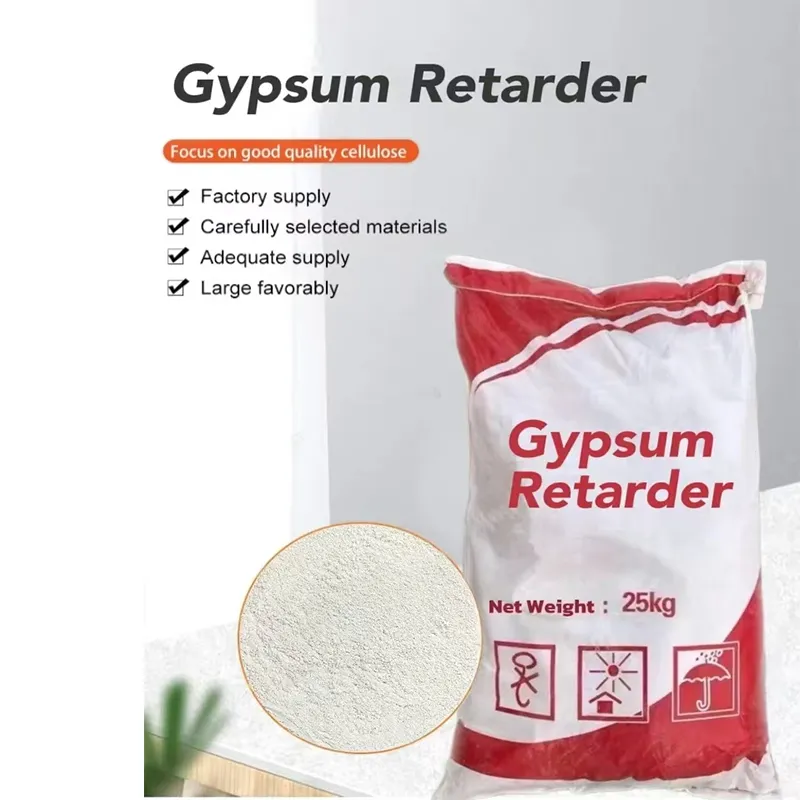
Image 1: Demonstrating the extended workability provided by gypsum retarder chemical.
Technical Specifications and Performance Parameters of Gypsum Retarder (RETARDER)
The effectiveness of a gypsum retarder chemical is quantified by a precise set of technical specifications and performance parameters. These metrics are crucial for formulators to ensure consistent product quality and predictable behavior in various gypsum-based applications. Understanding these parameters is key to achieving optimal results.
Key Technical Parameters for Gypsum Retarder (RETARDER)
Our RETARDER product is designed to offer robust and reliable performance. The following table outlines typical specifications:
| Parameter | Unit | Typical Value | Test Method |
|---|---|---|---|
| Appearance | - | White to Off-White Powder | Visual |
| pH (1% Solution) | - | 4.0 - 7.0 | ISO 4316 |
| Moisture Content | % | ≤ 5.0 | ASTM D280 |
| Particle Size (through 100 mesh) | % | ≥ 95 | ASTM D1921 |
| Bulk Density | g/cm³ | 0.50 - 0.70 | ASTM D1895 |
| Recommended Dosage | % by weight of gypsum | 0.01 - 0.10 | Application Specific |
| Initial Setting Time (controlled conditions) | minutes | Adjustable from 30 to 180+ | ASTM C472 / EN 13279 |
| Final Setting Time (controlled conditions) | minutes | Typically 15-30 min after Initial | ASTM C472 / EN 13279 |
Understanding the Impact of Key Parameters
- Appearance & pH: These physical properties indicate the purity and stability of the retarder. A consistent appearance signals consistent manufacturing, while pH can influence compatibility with other additives in a gypsum blend.
- Moisture Content: Low moisture content is critical for shelf stability and prevents clumping, ensuring easy dispersion into the dry gypsum mix.
- Particle Size: A finely ground powder allows for uniform dispersion throughout the gypsum powder, leading to consistent retardation across the entire mix.
- Recommended Dosage: This is perhaps the most critical parameter. The dosage rate for a gypsum plaster retarder is typically very low (0.01% to 0.10% by weight of gypsum), yet it profoundly impacts setting time. Precise control here is vital to achieve the desired workability without negatively affecting strength. Overdosing can lead to excessively long setting times or even setting failure.
- Setting Times (Initial and Final): These define the window of workability. Initial setting time refers to when the gypsum mix loses its plasticity and can no longer be easily worked. Final setting time is when the material has hardened sufficiently to bear light loads or be further processed. Our RETARDER offers flexibility to adjust these times, providing control for various application speeds and environmental conditions.
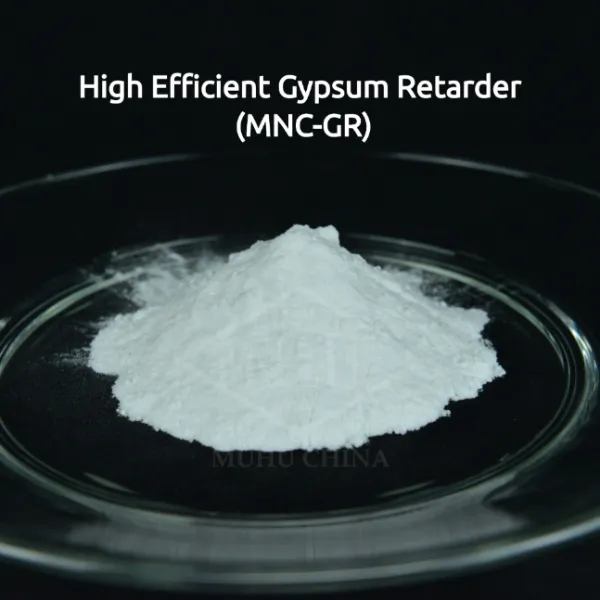
Image 2: Visualizing the performance characteristics and controlled setting of gypsum retarder chemical.
By meticulously controlling these parameters, our gypsum retarder chemical empowers manufacturers to produce high-quality gypsum products with reliable and consistent performance, addressing the diverse needs of the construction industry.
Application Scenarios and Technical Advantages
The versatility of our gypsum retarder chemical makes it an indispensable component across a broad spectrum of gypsum-based construction materials. Its ability to precisely control the setting time unlocks numerous technical advantages, optimizing both the application process and the final product performance.
Diverse Application Scenarios
- Hand-Applied Plasters: Essential for traditional plastering work, allowing craftsmen ample time to mix, apply, level, and finish large surfaces and intricate details before the gypsum sets.
- Machine-Applied Plasters: Critical for modern construction, where plaster is pumped and sprayed onto surfaces. A consistent and extended open time is vital for smooth machine operation, preventing blockages and ensuring a uniform coat. This is where a reliable gypsum plaster retarder truly shines.
- Gypsum-Based Joint Compounds: Used for taping and finishing gypsum board joints. Retarders provide the necessary workability for smooth application, feathering, and achieving seamless finishes.
- Self-Leveling Compounds: While often associated with floor screeds, some gypsum-based self-leveling compounds also benefit from controlled setting times to allow for proper flow and leveling before solidification.
- Decorative and Ornamental Gypsum Products: For complex molds and castings, retarders offer the flexibility required for intricate detailing and assembly of multiple components.
- Specialty Repair Mortars: In restoration and repair, precise control over setting is crucial for matching existing materials and ensuring structural integrity.
Technical Advantages Demonstrated
The integration of our gypsum retarder chemical into gypsum formulations delivers a suite of technical advantages:
- Extended Open Time and Workability: This is the primary benefit, allowing for longer mixing, transportation, and application times. This flexibility is invaluable in varying ambient temperatures and humidity levels.
- Improved Rheology: The controlled hydration process contributes to a smoother, more consistent mix, enhancing pumpability and spreadability, reducing tool marks, and facilitating easier finishing.
- Reduced Shrinkage and Cracking: By allowing for a more gradual and controlled crystal growth, retarders can contribute to reducing internal stresses, thus minimizing the potential for shrinkage cracks in the cured gypsum.
- Enhanced Adhesion and Cohesion: A longer working time permits better bonding of the plaster to the substrate and improved internal cohesion, leading to a more durable and stable application.
- Uniformity and Consistency: Ensures that across multiple batches and large areas, the gypsum product behaves predictably, leading to a high-quality, uniform finish every time. This is particularly important for large construction projects where consistency is non-negotiable.
- Energy Saving (Indirect): While not directly energy-saving in terms of power consumption, the reduction in rework, material waste, and optimized labor time translates into significant overall project cost savings and resource efficiency.
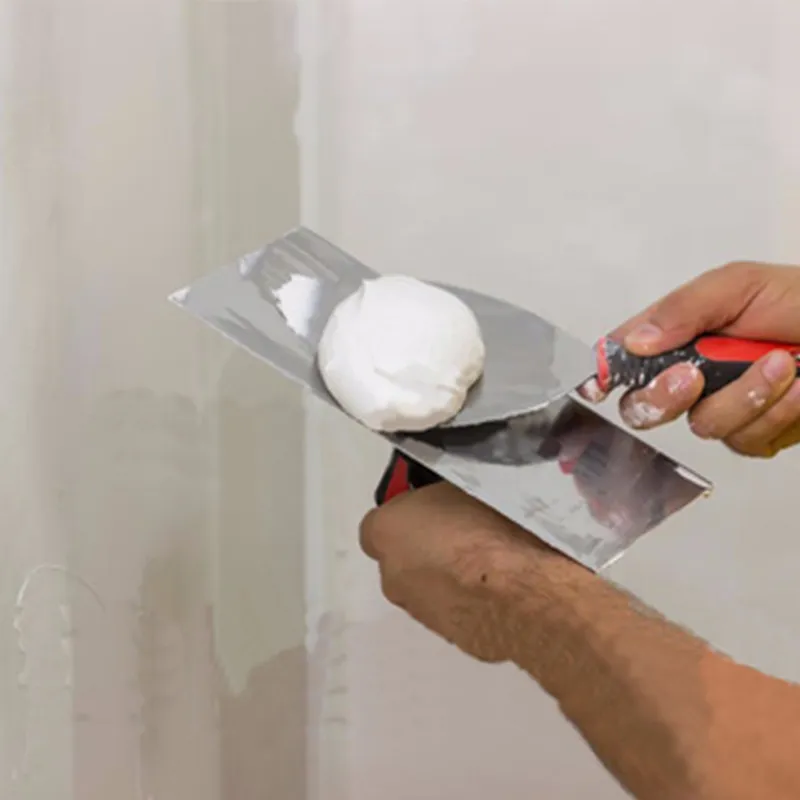
Image 3: Showcasing the seamless finish achieved with properly retarded gypsum plaster, a testament to the benefits of gypsum retarder chemical.
These advantages collectively contribute to higher quality construction, increased productivity, and enhanced cost-effectiveness, making our Gypsum Retarder a vital asset for any gypsum product manufacturer or construction professional.
Vendor Comparison and Customized Solutions
Choosing the right supplier for a gypsum retarder chemical is a strategic decision that impacts product quality, operational efficiency, and ultimately, market competitiveness. Beyond the product itself, factors such as technical support, consistency, and customization capabilities are paramount for B2B partners.
Key Factors in Vendor Selection
- Product Consistency and Quality: Unwavering quality ensures predictable performance of your end products, minimizing batch variations.
- Technical Expertise and Support: A strong technical team can provide invaluable guidance on dosage, compatibility, and troubleshooting for complex formulations.
- Range of Products: A diverse portfolio allows for selection of the most suitable retarder for specific gypsum types and application requirements.
- Certifications and Compliance: Adherence to international standards (e.g., ISO) and regulatory requirements demonstrates commitment to quality and safety.
- Logistics and Supply Chain Reliability: Timely and consistent delivery is critical to maintain production schedules and avoid costly downtime.
Comparative Analysis: Our RETARDER vs. Industry Standards
To illustrate our competitive advantages, let's consider a comparison. While specific brand names like usg gypsum plaster retarder represent established benchmarks, our solutions are designed to offer optimized performance and value.
| Feature/Parameter | Our RETARDER | Competitor A (Standard) | Competitor B (Economy) |
|---|---|---|---|
| Typical Dosage Rate (by weight of gypsum) | 0.01% - 0.08% | 0.02% - 0.15% | 0.05% - 0.20% |
| Setting Time Range Achievable (min) | 30 - 180+ | 25 - 120 | 20 - 90 |
| Impact on Final Strength | Negligible to Positive | Negligible | Potentially Negative (at high dosage) |
| Temperature Sensitivity | Low | Moderate | High |
| Consistency (Batch-to-Batch) | Excellent | Good | Fair |
| Technical Support & Customization | Extensive | Limited | Minimal |
| Certifications (e.g., ISO 9001) | Yes | Often | Rarely |
The Power of Customized Solutions
No two gypsum formulations or application environments are identical. This is why our commitment to customized solutions is a cornerstone of our service. We understand that factors such as the purity of raw gypsum, water-to-gypsum ratio, other additives (e.g., thickeners, defoamers), and ambient conditions (temperature, humidity) significantly influence the performance of a gypsum retarder chemical.
Our technical team collaborates closely with clients to:
- Analyze Specific Needs: Understanding the client's existing gypsum formulation, desired setting time, application method (hand/machine), and end-product properties.
- Formulate Bespoke Blends: Developing unique blends of retarders that are precisely calibrated to achieve the desired setting profile and compatibility with other components in the mix. This can involve combining different organic acids or protein derivatives.
- Conduct Rigorous Testing: Performing extensive lab and pilot-scale trials to validate the customized solution's performance under simulated application conditions.
- Provide On-site Support: Offering technical assistance during initial production runs to ensure smooth integration and optimal performance.
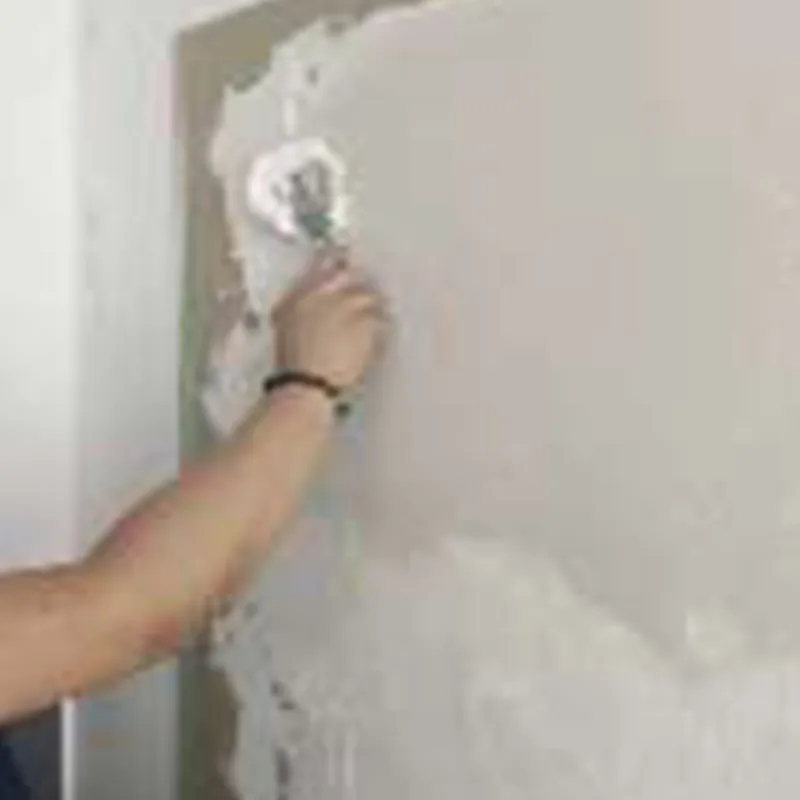
Image 4: Our R&D team developing a customized gypsum retarder chemical solution for specific client requirements.
This tailored approach ensures that our clients receive not just a product, but a perfectly optimized solution that enhances their manufacturing process and the quality of their final gypsum offerings. Our years of service and partnerships with leading construction material manufacturers globally attest to our authoritative position in this specialized field.
Real-world Application Case Studies and Customer Experience
The true measure of a gypsum retarder chemical lies in its performance under demanding real-world conditions. Our extensive experience working with diverse clients globally has yielded numerous success stories, demonstrating the tangible benefits of our RETARDER solutions. These case studies underscore our commitment to delivering reliable products and unparalleled technical support.
Case Study 1: Large-Scale Residential Development – Mitigating Premature Setting
Client Profile: A major European construction firm undertaking a multi-building residential complex, utilizing machine-applied gypsum plaster for interior finishes.
Challenge: The client was experiencing significant issues with their existing gypsum plaster retarder. Rapid fluctuations in ambient temperature (typical of summer months) led to inconsistent setting times, often resulting in premature hardening of the plaster mix in the pumping equipment and on the wall. This caused frequent machine downtime, material waste, and required extensive manual rework, severely impacting project timelines and costs.
Solution: Our technical team collaborated closely with the client, analyzing their specific gypsum source, water quality, and typical operational temperatures. We formulated a customized RETARDER blend with enhanced temperature stability and a more linear retardation curve. After initial lab testing, a pilot application was conducted on-site.
Results and Customer Feedback: The new RETARDER formulation provided a consistent open time of 90-120 minutes, even with temperature variations. Machine blockages were virtually eliminated, leading to a 25% increase in daily application efficiency and a 15% reduction in material waste. The client reported, "The consistency and reliability of your gypsum retarder chemical have been a game-changer for our project. We've seen significant cost savings and our teams are much more productive."
Case Study 2: Historic Building Restoration – Achieving Intricate Details
Client Profile: A specialized heritage restoration company in the UK, tasked with replicating ornate gypsum mouldings and decorative plasters in a protected historic building.
Challenge: The intricate nature of the original mouldings required a very long open time for precise casting, sculpting, and joining of delicate gypsum components. Conventional retarders either offered insufficient extension or compromised the final strength and detail definition of the gypsum.
Solution: We provided a specialty gypsum retarder chemical, a protein-based blend, known for its ability to provide extended retardation without negatively impacting the rheology or final hardness of the gypsum. We worked with their artisans to optimize the dosage for their specific gypsum plaster and water ratios, targeting an initial setting time exceeding 3 hours.
Results and Customer Feedback: The extended workability allowed the artisans unprecedented control, enabling them to recreate the complex details with exceptional fidelity. The final cured gypsum maintained its strength and crispness. The client lauded, "Your retarder gave us the artistic freedom we needed. The level of detail we achieved was remarkable, and the material handled beautifully throughout the entire process."
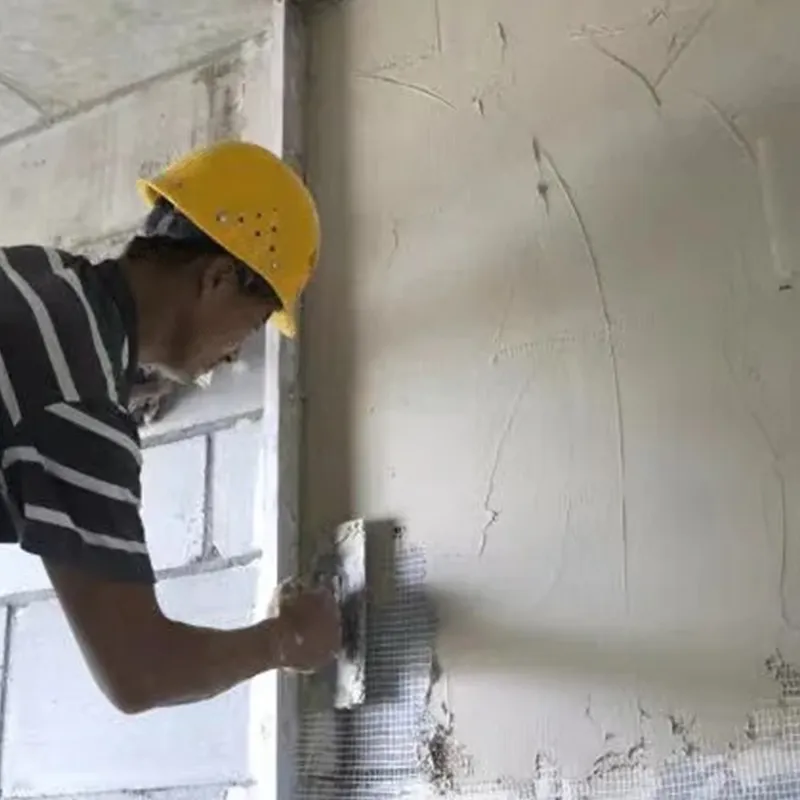
Image 5: A successful application showcasing the extended workability and quality finish achieved with our gypsum retarder chemical.
These case studies illustrate our dedication to solving real-world challenges with high-performance gypsum retarder chemical solutions and unwavering customer support. Our long-standing relationships with partner clients worldwide are a testament to our commitment to excellence and reliability.
Trustworthiness and Support: Your Partner in Gypsum Solutions
Building enduring partnerships in the B2B sector relies on more than just product quality; it demands transparency, reliability, and robust support. We pride ourselves on establishing trust through clear communication, comprehensive service, and unwavering commitments to our clients.
Frequently Asked Questions (FAQ) about Gypsum Retarders
Q1: How do I select the right gypsum retarder chemical for my application?
A1: Selection depends on several factors: the type of gypsum (alpha or beta hemihydrate), desired setting time, application method (hand or machine plaster), other additives in your formulation, and ambient conditions. Our technical team can provide tailored recommendations based on your specific requirements and conduct compatibility tests.
Q2: What is the typical dosage of your Gypsum Retarder (RETARDER)?
A2: The recommended dosage is typically very low, ranging from 0.01% to 0.10% by weight of gypsum. The exact dosage is highly dependent on the desired retardation effect and specific formulation, and should always be determined through preliminary trials. Our technical data sheets provide starting points for various applications.
Q3: How does temperature and humidity affect the performance of a gypsum retarder?
A3: Higher temperatures generally accelerate gypsum hydration, requiring a slightly higher dosage of gypsum retarder chemical to achieve the same open time. High humidity can also affect drying rates. Our retarders are designed with a degree of temperature stability, and our technical team can advise on dosage adjustments for specific climatic conditions.
Q4: Are your products environmentally friendly and do they have relevant certifications?
A4: We are committed to sustainable practices. Our Gypsum Retarder products are generally considered safe for use in construction materials. Our manufacturing facilities are ISO 9001 certified, ensuring consistent quality and adherence to recognized international standards.
Lead Time and Fulfillment Details
We understand the critical importance of timely delivery to maintain your production schedules. Our standard lead time for most orders of gypsum retarder chemical is typically 7-14 business days, depending on order volume and specific product customization. We operate a robust global logistics network, partnering with reliable freight forwarders to ensure efficient and secure delivery to your designated location. For urgent requirements or large-volume contracts, we encourage direct communication with our sales team to discuss expedited options and tailored supply chain solutions.
Warranty Commitments
Our products are manufactured under stringent quality control protocols, and we stand by their performance. We provide a comprehensive product warranty guaranteeing that our gypsum retarder chemical products will meet the specifications outlined in our technical data sheets and agreed-upon performance parameters when stored and used according to our recommendations. Any deviation from these specifications will be addressed promptly, including replacement or credit for defective products, as per our standard terms and conditions.
Dedicated Customer Support and After-Sales Service
Our commitment extends beyond product delivery. We offer dedicated customer support, including a team of experienced technical specialists available to assist with product selection, application guidance, troubleshooting, and optimization. This includes:
- Technical Consultation: Expert advice on formulation development and process optimization.
- Sample Provision: Providing product samples for client testing and evaluation.
- Problem Resolution: Prompt and effective resolution of any product-related issues.
- Ongoing Training: Offering knowledge transfer and training sessions for client's technical teams.
We believe in fostering long-term relationships built on mutual trust and success, ensuring you have a reliable partner every step of the way.
Conclusion
The gypsum retarder chemical is a testament to the sophistication of modern construction chemistry, acting as a crucial enabler for efficient, high-quality, and versatile gypsum-based building materials. From extending workability in machine-applied plasters to facilitating intricate decorative finishes, its impact on project timelines, labor costs, and overall finish quality is undeniable.
Our Gypsum Retarder (RETARDER) is engineered with precision, backed by rigorous quality control, and supported by a commitment to technical excellence and customized client solutions. We empower manufacturers and construction professionals to optimize their processes, reduce waste, and deliver superior gypsum products that meet the evolving demands of the global construction industry. Partner with us to leverage cutting-edge chemical solutions for your next project, ensuring consistency, reliability, and innovation.
Authoritative References
- ASTM C472 / C472M - 19, Standard Test Methods for Physical Testing of Gypsum, Gypsum Plaster, and Gypsum Concrete. ASTM International.
- EN 13279-1:2008, Gypsum binders and gypsum plasters - Part 1: Definitions and requirements. European Committee for Standardization.
- Schroder, C. (2010). Gypsum: Production, Properties, and Application. Chapter on "Additives for Gypsum Plasters". Bauverlag GmbH.
- Marchal, J. (2007). The Chemistry of Gypsum Setting and Retardation. Journal of Applied Chemistry.
- ISO 9001:2015, Quality management systems – Requirements. International Organization for Standardization.
-
Reliable Powdered Cellulose Supplier: Quality, Sustainability & InnovationNewsNov.24,2025
-
Find Trusted Microfibrillated Cellulose Suppliers for Sustainable Industrial SolutionsNewsNov.24,2025
-
Leading Methocel Suppliers: Quality, Innovation & Sustainability in Methylcellulose SupplyNewsNov.23,2025
-
Reliable Hydroxyethylcellulose Suppliers for Industry & Sustainability | Tangzhi HPMCNewsNov.23,2025
-
Top Ethyl Cellulose Supplier – Quality, Sustainability, and Industrial SupportNewsNov.23,2025
-
Trusted CMC Powder Suppliers for Food, Pharma & Industrial Use | Tangzhi HPMCNewsNov.22,2025





















